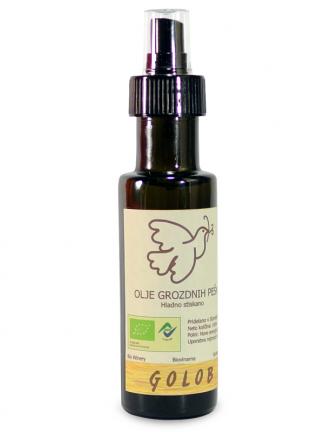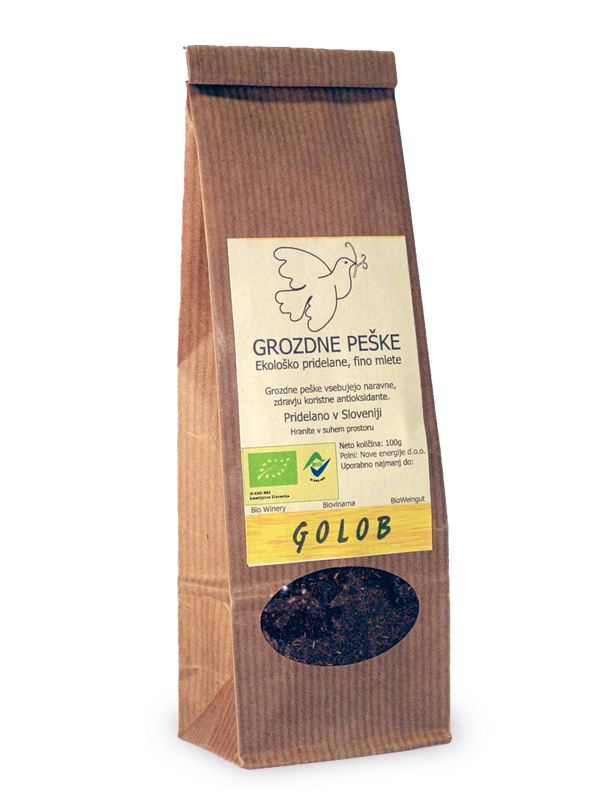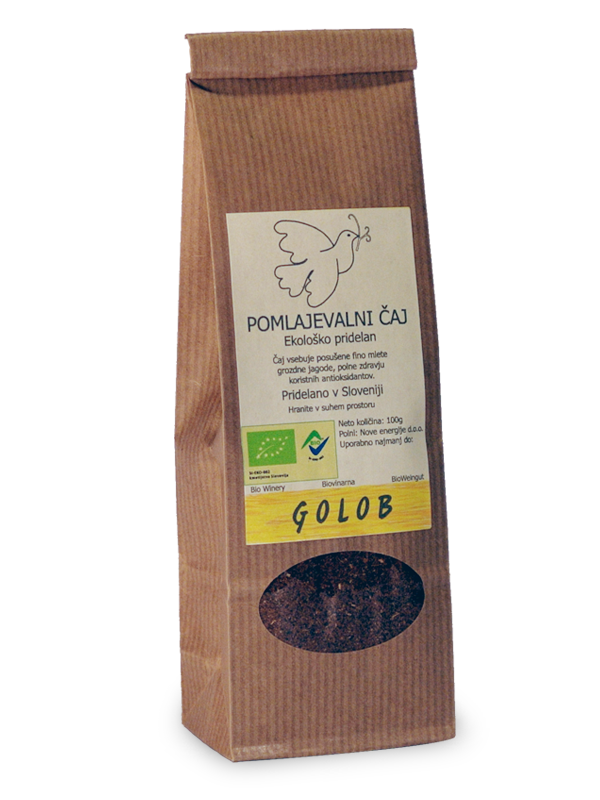From the dawn of man to our present day, the production and consumption of grapes and various grape products (raisins, wines, juices, etc.) have been intricately interwoven into the fabric of human history. Not only do grapes provide us with vital carbohydrates, vitamins, minerals and edible fibers, they also supply us with essential phytochemicals. Due to their numerous biological activities and promotion of good general health, grape polyphenols are, without a doubt, the most important of these grape phytochemicals.
Polyphenols are a structural class of organic chemicals, characterized by two or more benzene rings, each of which has at least one hydroxyl group attached to it. Grape polyphenols are derived primarily from the skin, seeds, leaves and stems of the fruit, rather than the fleshy interior. Grape seeds are particularly rich in these bio-chemicals. Primary health benefits from ingesting these polyphenols include cardioprotective, anti-aging, antimicrobial, anti-inflammatory, antioxidant and anticancer activities. This article will focus primarily on the effect of grape polyphenols on cancer.
The high morbidity and mortality rates of cancer, coupled with the disease’s negative psychological and socioeconomic ramifications, have made it one of the world’s most pressing health concerns. It is particularly rampant in Europe, causing approximately 20% of all deaths in the European Region. Studies on the etiology and epidemiology of cancer have generally found that lifestyle and environmental factors are both major influencers in the onset of the disease. The global scientific community is extremely interested in cancer prevention and cure, with recent focus shifting to chemoprevention (the prevention of disease by chemical agents obtained from specific foods and/or dietary supplements) as this approach facilitates implementation on a wider population base, reduces economic strain, demonstrates selective toxicity to precancerous and cancerous cells and is effective against most types of cancer. Researchers agree that proper nutrition is vital, and in grape seed extract (GSE), they have definitely found a powerful tool in the fight against this deadly disease.
Grape seed extract is obtained from the pulverized seeds of wine grapes, and is rich in phenolic compounds known as proanthocyanidins. Studies show that proanthocyanidins may disrupt various biochemical pathways of cancerous cells, leading to reduced cell growth and proliferation, and induced apoptosis (programmed cell death). The effect of grape seed proanthocyanidins on various types of cancers has been investigated in the lab, with the results showing reduced skin tumors in mice and reduced breast tumors in rats. Grape seed extract is also bioactive in various laboratory human cancer cell lines (including prostate, colon, stomach, skin, lung and breast cancer cells).
Recent research suggests that grape seed extract is very effective against blood cancers such as leukemia, as it increases the programmed cell death of cancer cells while leaving normal cells unharmed. Dr. Rajesh Agarwal, researcher at the University of Colorado Cancer Center and professor at the Skaggs School of Pharmaceutical Sciences also reports exciting findings in the treatment of head and neck cancer cells with grape seed extract. Head and neck cancers (which include cancers of the nose, mouth, throat, salivary glands, sinuses and lymph nodes) affect over half a million people worldwide each year. In the European Union about 100,000 persons are diagnosed with this disease annually – with over 40,000 of these individuals eventually dying from it. Medical studies of head and neck squamous (epithelial) cell carcinoma in human cell lines and mouse models have revealed that grape seed extract destroys cancerous cells by directly damaging its DNA and by inhibiting its DNA repair pathways. Despite the devastating effect of grape seed extract on cancer cells, Dr. Agarwal stresses that healthy cells are completely unaffected.
From the evidence presented, it is clear that regular consumption of grapes and grape based products (such as grape seed extract) by the general population should be encouraged. Grapes provide us with so much more than just a light snack, a tasty treat or the occasional alcohol-induced “buzz.” Ailing individuals the world over might now have good reason to hope, because in grape seed extract, we possess a truly powerful and cost effective weapon in mankind’s long and terrible fight against cancer.
References
http://www.nlm.nih.gov/medlineplus/headandneckcancer.html
http://www.webmd.com/vitamins-and-supplements/lifestyle-guide-11/grape-seed-extract
http://www.examiner.com/article/grape-seed-proanthocyanidins-prevent-spread-of-skin-cancer-vitro
http://www.medicalnewstoday.com/articles/134311.php
http://medicalxpress.com/news/2012-01-grape-seed-neck-cancer-cells.html
http://www.cancer.org/treatment/treatmentsandsideeffects/complementaryandalternativemedicine/dietandnutrition/grapes
http://www.ncbi.nlm.nih.gov/pmc/articles/PMC2728696/
Image courtesy of Oldcastle



